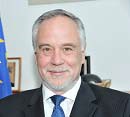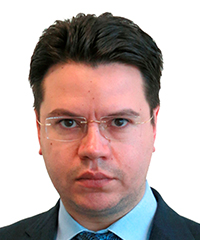Asian Infrastructure Forum workshop 1- Connectivity with Central Asia: Challenges and Opportunities (June 26, 1500-1630), Gulmohar, Trident
Objectives
- Discuss the need for regional infrastructure integration and economic cooperation within Central Asia to drive improved connectivity through this region between Asia and Europe.
- Analyze current developments and bottlenecks of infrastructure in Central Asia, focusing on the following sectors:
° Road networks,
° Aviation connectivity,
° Railway networks, and
° Freight logistics and warehousing
- Examine the mobilization of private capital financing into Central Asia, and what considerations are made by the private sector when evaluating investment opportunities in this region.
- Consider investment opportunities in infrastructure projects in Central Asia
Background
Regional connectivity, sustainable infrastructure and private capital mobilization, are the strategic investment pillars of AIIB. Established in 2016, the Bank is mandated to support economic development in Asia via investments in infrastructure and other productive assets. Azerbaijan, Georgia, Kazakhstan, the Kyrgyz Republic, Russia, Tajikistan and Uzbekistan are all founding members of the Bank. Since its establishment, AIIB has committed approximately USD 800 million of sovereign backed financings to projects throughout this region. Cross border projects ranging from roads and railroads to ports and airports to logistics have been identified as investment priorities for the Bank.
Possible Discussion Topics
- Focus on the development basis for increased regional connectivity within Central Asia, highlighting the economic benefits and social gains that can be reaped globally from infrastructure investments.
- Showcase upcoming infrastructure projects in the region.

Mr. Pierre Amilhat-Director, European Commission (Moderator)
Pierre Amilhat began his career at the College of Europe, as an assistant in the department of Political and Administrative Studies. In 1982, he joined the European Commission, dealing with electronic documentation & Community Law. Then in 1987 he joined the Court of Justice working with the Court Registrar. Returning to the European Commission in 1993, he has worked in External Relations, Trade and Maritime Affairs & Fisheries, as well as serving in the EC Delegation to Vietnam. He is currently Director for Asia, Central Asia, Middle East/Gulf and Pacific in the Directorate General for International Cooperation and Development.
As a French national, he holds a Masters Degree in Law and a Masters Degree in European Studies. He is married and has three children.

Mr Maxim Korzhov-Deputy Chairman, Eurasian Development Bank
Maxim Korzhov graduated from Lomonosov Moscow State University, majoring in economics, and obtained his master’s degree at City University London. He holds a candidate of economics degree.
In 2003-2007, he worked at LUKOIL Overseas, his positions ranging from lead specialist to head of Business Development. In 2007-2011, Korzhov worked at Deutsche Bank as vice president of the Global Markets Department and then as Director of the Investment Banking Department. In 2011-2015, he was managing director of the Corporate Investment Department and executive director at VTB Capital, and a member of the Board of Directors at VTB Kazakhstan.
Maxim Korzhov was appointed as Deputy Chairman of the Management Board of the EDB on 2 March 2015.

Mr. Liang Ziqian-Deputy Director, CAREC Institute

Ms. Ekaterina Miroshnik-Head of Infrastructure, Russia, Central Asia and Mongolia, EBRD
Ekaterina Miroshnik leads the EBRD infrastructure team in Russia, Central Asia and Mongolia. She joined EBRD London in 2000 as an Analyst and during her career in EBRD worked on projects in infrastructure and energy sectors. She was on assignments in the field, first in Moscow and then in Almaty, covering infrastructure projects in a number of countries to include Russia, Kazakhstan, Türkiye and Southern and Eastern Mediterranean. Ekaterina became Director, Head of Infrastructure in Russia, Central Asia and Mongolia in March 2013. Her team provides financing in a variety of forms, including sovereign and non-sovereign public sector loans, limited and non-recourse project funding involving private companies or public-private partnerships, and equity. Ekaterina holds a Masters of Science in International Economic Relations from the Moscow State Institute for International Relations (MGIMO), as well as PhD from the same Institute.

Mr. Peng Hao-Deputy General Manager of Corporate Banking Department, Export-Import Bank of China
Peng joined China Eximbank after he got his master’s degree from Beijing International Studies University in 2005. He worked in different departments within the bank, reviewing various types of project in different industries and countries. Some projects undertaken by his team won "Deal of the year" from EUROMONEY. The projects closed by his team provided strong financial support in facilitating export-import trade, promoting the “going global” of Chinese enterprises, and accelerating the development of China’s open economy and international economic cooperation. He’s now at a key management position of Corporate Banking Department, the largest department within China Eximbank. He’s heading the team reviewing finance in oil/gas/petrochemical industry, and projects in south/west/north-east Asia and European countries.
